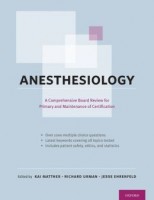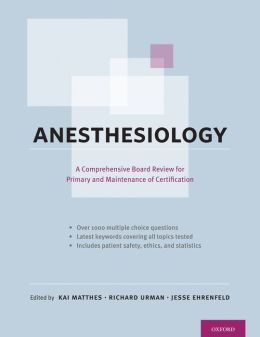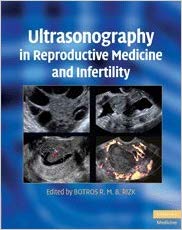 Editors: Kai Matthes, Richard D. Urman and Jesse M. Ehrenfeld
Editors: Kai Matthes, Richard D. Urman and Jesse M. Ehrenfeld
Publisher: Oxford University Press – 638 pages
Book Review by: Nano Khilnani
With 45 physicians from the United States, India and the Netherlands contributing material for 21 chapters covering a wide range of topics, and nearly 30 others reviewing the contributions, this review book constitutes an authoritative guide to the United States’ board examination for anesthesiology.
The content has been expertly organized for comprehensive review and retention, for doctors intending to prepare for this crucial exam – the final hurdle for those who’ve gone through college, medical school, internship, and residency, and now want to become practicing anesthesiologists.
The three editors of this book – Drs. Kai Matthes, Richard Urman and Jesse Ehrenfeld – are professors of anesthesiology at several hospitals in the United States. They have many years of experience among themselves not only with anesthesia administration but also in related areas such as biomedical informatics, preoperative data systems research, preoperative quality, and sedation management and safety.
The editors point out that anesthesia board exam takers usually have limited time to prepare because most of them are already practicing physicians. Additional constraints are placed on them due to job prospects, monetary factors, and peer pressure.
With these considerations in mind, the editors write that they designed this review book “to provide the best study aid possible with a maximized use of time and focus on what is essential to pass. It is a high-yield, concise study guide to prepare for the written Anesthesiology Boards and the Maintenance of Certification in Anesthesiology (MOCA).”
Among the other key features of this review book are:
- More than 1,000 updated, realistic multiple-chose questions written by Harvard Medical School faculty and experts from partnering teaching institutions tailored to the question content of recent American Board of Anesthesiology examinations
- Streamlined approach, while containing adequate depth of knowledge focused on topics frequently covered in the examination
- Key messages highlighted and repeated in bullet points
- New, emerging subjects as ethics, patient safety, and statistics
- Charts, graphs, tables and other illustrations as study and review aids
- High-yield summary of the 60 most-frequently tested topics and concepts to be reviewed just before taking the boards
- Access to a website that has continuously updated content, and a simulated exam
Coverage in this book is broad. It contains chapters on: acute and chronic pain, airway equipment, anesthesia and disease states, cardiac anesthesia, complications, high-yield board review topics, inhalational anesthesia, intensive care, neuroanesthesia, obstetric anesthesia, pediatric anesthesia, pharmacology, pulmonary physiology, statistics and ethics, thoracic anesthesia, transfusion therapy, transplant anesthesia, and vascular anesthesia.
The chapters contain multiple-choice questions, followed by a section that contains the correct answer to each question, an elaboration of that answer, illustrations in some places to aid in learning, key facts associated with the topic, and finally, a list of additional readings. This is what we call “expert organization.”
This is an excellent guide with concise questions and answers that make for efficient, time-saving, and really effective review for the anesthesiology board examination.
Kai Matthes, MD, PhD is assistant professor of anesthesia at Harvard Medical School. He is also affiliated with Boston Children’s Hospital in Boston, Massachusetts.
Richard D. Urman, MD, MBA, CPE is assistant professor of anesthesia at Harvard Medical School, director of procedural sedation management and safety and co-director of the Center for Preoperative Management and Medical Informatics at Brigham and Women’s Hospital in Boston.
Jesse M. Ehrenfeld is associate professor of anesthesiology and biomedical informatics, director of the Center for Evidence-Based Anesthesia, director of preoperative data systems research, and medical director of preoperative quality at the Vanderbilt University School of Medicine in Nashville, Tennessee.







